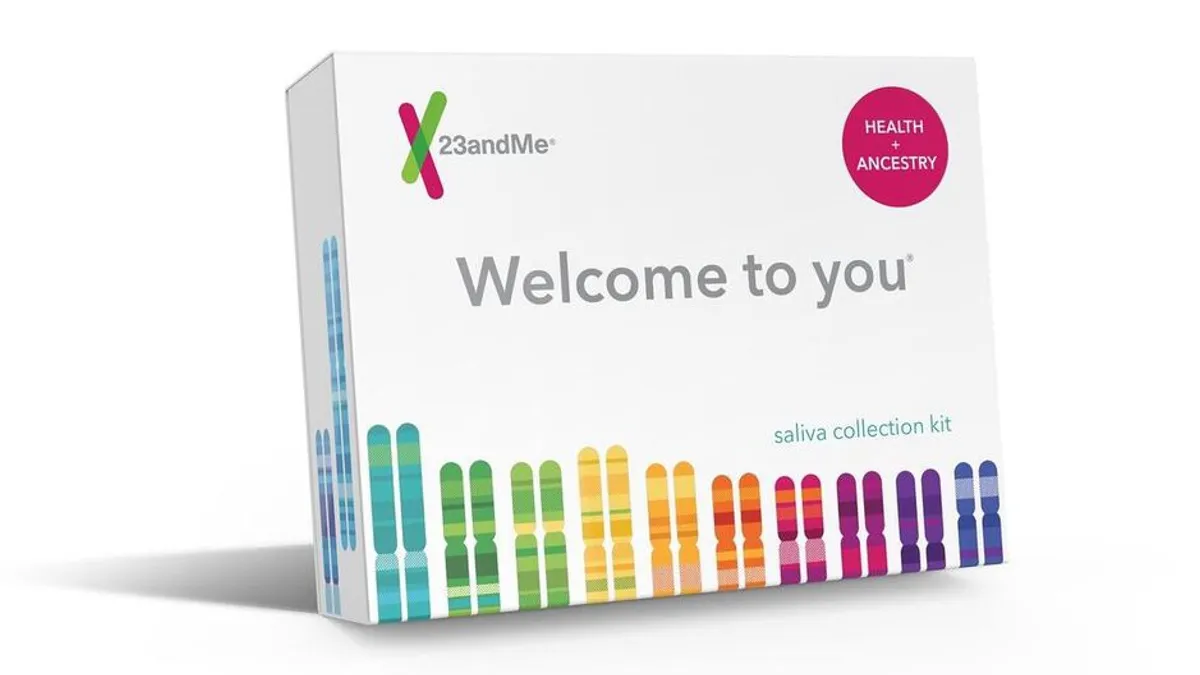Dive Brief:
- The U.S. Food and Drug Administration cleared 23andMe on Thursday to report another 41 BRCA1 and BRCA2 gene variants in its cancer risk test.
- 23andMe received clearance for the original test in 2018, but that product only tested for three mutations. A competitor, Invitae, recently warned testing for the three mutations misses more than 90% of pathogenic or likely pathogenic variants in the general population.
- The expanded clearance helps address that criticism. In announcing the development, 23andMe highlighted the prevalence of the newly added variants in African American and Hispanic/Latino communities, and can add more variants without undergoing additional premarket review.
Dive Insight:
The original 23andMe product tested for three specific BRCA1/BRCA2 breast cancer gene mutations that are most common in people of Ashkenazi Jewish descent. Because the three mutations are rare in some other populations, and there are more than 1,000 known BRCA mutations, the test was unable to detect increased cancer risk in some people.
23andMe’s latest 510(k) clearance positions it to provide a truer picture of cancer risk, although some limitations remain. The updated test detects the original three mutations, plus 41 additional variants. According to 23andMe, the 44 variants account for “about 30-40% of cancer-related BRCA variants among people of African American, non-Ashkenazi European and Hispanic/Latino descent; as well as variants found of people of East Asian and South Asian.”
Adding the variants expands the types of cancer risk the test can detect. As well as assessing breast cancer risk in both women and men, the test checks for variants associated with a significantly higher risk of breast and ovarian cancer, and a higher risk of prostate and pancreatic cancer.
The FDA has also entered into a Predetermined Change Control Plan (PCCP) with 23andMe. Described by 23andMe as the first of its kind, the PCCP provides clearance to include additional validated BRCA1 and BRCA2 variants and associated cancer risk information in the report without undergoing FDA premarket review again. The PCCP sets the protocols and acceptance criteria for 23andMe.










